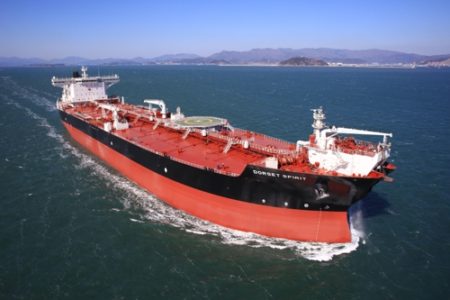By exerting pressure on Iran, the U.S. expects the country’s oil exports will plummet, thus slashing Iran’s oil revenue.
Pompeo added that the U.S. has worked with other countries to cut off Iranian oil exports as much as possible.
Many countries and companies from the industry have pulled back from Iran resulting in significant cut of Iran’s oil exports.
However, any financial institution, company, or individual that evades the sanctions risks losing access to the U.S. financial system and the ability to do business with the United States or U.S. companies, Secretary of the Treasury Steve Mnuchin, warned.
Commenting on the attempts of the European Union to set up a Special Purpose Vehicle to continue doing business with Iran, Mnuchin stressed that the EU was not included in the temporary waiver list.
“I have no expectation that there will be any transactions that are significant that go through a Special Purpose Vehicle based upon what I’ve seen. But when the details come out of some Special Purpose Vehicle, if there are transactions that go through there that have the intent of evading our sanctions, we will aggressively pursue our remedies,” he added.
Poten & Partners said in its weekly report that the eight countries on the waiver list are likely to include Japan, India, South Korea and China.
“The waivers come with strings attached. Countries that receive waivers will need to pay for the Iranian oil into escrow accounts in their local currency. Iran can use this money to buy “nonsanctioned goods” like food or medicine from these countries, but it is not able to repatriate the money directly. Given the threat of U.S. sanctions, it is highly unlikely that banks will want to violate these escrow restrictions,” Poten explained.
Since May this year, crude oil exports from the third largest OPEC producer, after Saudi Arabia and Iraq, have been reduced from more than 2.5 million barrels per day (mb/d) to less than 1.75 mb/d, Poten’s data shows. Although a complete halt in exports is unlikely, further reductions are expected pushing Iranian exports to below 1 mb/d within 6 months.
Poten believes Iran will try to keep production at a higher level and some of the excess production will likely end up in floating storage. During the previous round of sanctions, some 50 million barrels of Iranian oil was stored on Iranian tankers in the Arabian Gulf, tying up a substantial part of Iran’s tanker fleet.
OPEC producers, in particular Saudi Arabia, Iraq and the UAE have boosted production and the Saudis have committed to further increases if needed. Russia has also ramped up production compensating for a portion of Iranian oil.
With a considerable portion of Iranian tanker fleet out of the picture, operators can expect to benefit from the higher
demand for the global commercial fleet.
As Euronav disclosed earlier, currently there are 14 inactive Iranian VLCCs implying a similar substitution requirement for tonnage from the global fleet. This requirement is likely to grow and be maintained as US sanctions are fully applied, the company pointed out.
“The crude oil tanker market has picked up significantly in recent weeks. While this is not solely driven by the impending sanctions against Iran, they did contribute to the increase in tanker rates and will likely continue to do so.
“For example, replacing short-haul Iranian barrels to India with longer haul supplies from West Africa and the U.S. generates additional ton-mile demand. Taking a significant portion of the Iranian tanker fleet and dedicating it to floating storage takes capacity off the market. These are examples of factors that tighten market balances and will continue to push up rates,” Poten said.
Copyright Ships & Ports Ltd. Permission to use quotations from this article is granted subject to appropriate credit given to www.shipsandports.com.ng as the source.
